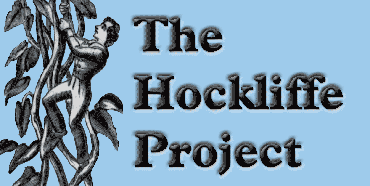

 |
|
 |
| Previous | Next |
| Author: | Crowe, Catherine |
| Title: | Pippie's Warning; or, Mind Your Temper. By Catherine Crowe, author of 'Susan Hopley,' 'Lilly Dawson,' Etc., Etc. |
| Cat. Number: | 0088 |
| Date: | 1848 |
| 1st Edition: | 1848? |
| Pub. Place: | London |
| Publisher: | Arthur Hall & Co., 25 Paternoster Row |
| Price: | Unknown |
| Pages: | 1 vol., iv + 182pp and two pages of advertisements |
| Size: | 13.5 x 10.5 cm |
| Illustrations: | Frontispiece plus two further engravings |
| Note: |
Images of all pages of this book
Catherine Crowe (1800?-1876) was known mostly as a novelist and writer on the supernatural. Her most successful novels were Susan Hopley (1841) and Lilly Dawson (1847), the two titles advertised on the title-page, but her most celebrated work was probably The Night Side of Nature, a collection of supernatural stories. Crowe achieved some fame as a disciple of spiritualism. She published several works on the subject, as well as more several more works of fition, before a temporary attack of insanity in 1859 curtailed her career (Dictionary of National Biography). Besides Pippie's Warning Crowe made at least one other foray into children's literature producing an abridgement of Uncle Tom's Cabin in c.1853 which remained in print until at least 1879.
Pippie's Warning begins with the narrator, an old woman, eventually agreeing to pay a visit to the Hargreave household. She had been reluctant to go, since her last visit had been made miserable by the appalling manners of the two children of the household, Charles and Nelly, and their dog, Pippie. All of them were spoiled and, as a result wholly inconsiderate of the feelings of others. Yet politeness dictated that the visit could no longer be put off.
Once arrived, however, the narrator finds the children and their dog quite reformed. When the children and their parents go out, leaving the narrator alone, she even befriends Pippie. As she sleeps, the narrator dreams that Pippie himself is recounting the story of his adventures. It is this the description of this dream which forms the contents of the rest of the book.
Pippie explains how he was encouraged in his selfishness by the behaviour of Charles and Nelly, who were always bickering and seeking their own pleasure at any expense. The first change of his circumstances comes when he bites the visiting Lord Twistleton. Mr. Hargreaves orders that Pippie be hanged, and the servants, who all hate the dog for its troublesome and vicious nature, would have carried out the sentence had not Lord Twistleton's footman offered to buy him. For the rest of the book, the Hargreaves think their dog dead, but in fact Pippie begins a series of adventures during which he learns to moderate his behaviour and to consider the feelings of others. Meanwhile, Charles and Nelly are learning the same lessons, although at their one meeting with Pippie, Charles is still so cruel as to throw a cricket ball at the dog, breaking his leg. Finally Pippie rescues a boy who has befriended him from death in a snow-storm, and when the boy and the dog are carried into the Hargreaves' house to recover, Pippie is reunited with his former owners. All are now thoroughly ashamed of their former behaviour.
The book closes with the return of the Hargreaves to their home, and the narrator's account of his dream. It is pointed out to her that the dream was wholly true, but that, in fact, all Pippie's adventures had been reported to the narrator in letters and she was simply dreaming what she had already been told. Crowe, the noted spiritualist, ends her book, then, with a disappointingly mundane and rational explanation.
Lee, Stephen (ed.), Dictionary of National Biography, London: Smith, Elder, and Co., 1892 and after